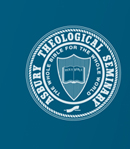Abstract
It has been well documented that the "way of salvation" was central to John Wesley's thought. But how did Methodists in the nineteenth century express a theology and spirituality of the way of salvation? This article examines formal doctrinal materials from Methodist churches (including catechisms, doctrinal statements, and hymnals) and the testimonies of Methodist men and women to discern how teachings about the way of salvation were transmitted after the time of John and Charles Wesley. Based on these doctrinal works and personal testimonies, the article shows a consistent pattern in Methodist teaching and experience involving a) conviction of sin, b) conversion, c) struggles of the soul following conversion, and then d) entire sanctification.
DOI
10.7252/Journal.01.2008S.01
Recommended Citation
Campbell, Ted A.
(2008)
"The "Way of Salvation" and the Methodist Ethos Beyond John Wesley: A Study in Formal Consensus and Popular Reception,"
The Asbury Journal:
Vol. 63:
No.
1, p. 5-31.
Available at:
https://place.asburyseminary.edu/asburyjournal/vol63/iss1/2

